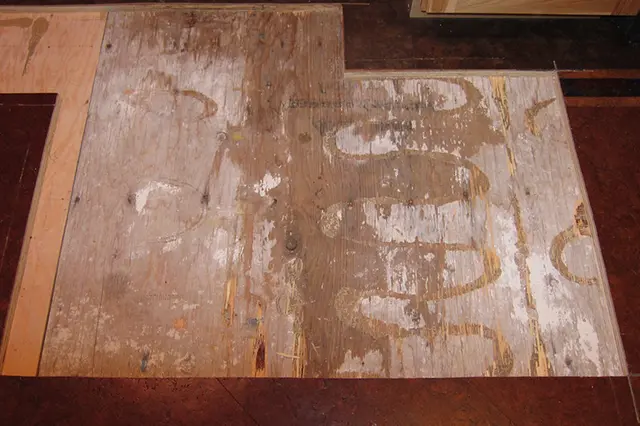What is considered sudden water damage?
When you hear the word “sudden water damage,” what images might come to mind? Perhaps you think of a flooded basement, or a wet wall that’s slowly seeping water. Water damage can be caused by any number of things, and it can happen to anyone at any time. In this blog post, we will explore the different types of water damage and how you can deal with them in the most effective way possible. From drying out affected areas to securing your belongings, read on to learn everything you need to know about water damage and how to prevent it from happening to you.
What is considered sudden water damage?
Sudden water damage is typically when there is a burst or leak in the water system, such as from a broken pipe. This can quickly cause extensive and costly damage to any property with water inside it.
There are several different types of water damage that can happen, and each requires a different approach in order to remedy the issue. We will explore each type below and provide tips on how to prevent them from happening to you in the first place.
First, let’s take a look at flooding: when water accumulates rapidly in an area, it can cause extensive damage. Flooding can occur from a broken pipe, overflowing sink, or any other type of obstruction in the water system.
If you think you may have experienced flooding, be sure to check for signs of water damage throughout your home. Check around floorboards and beneath cabinets for wet spots, look for mold and mildew growth, and test for wet basements by dropping a lit candle into the opening. If there is significant water damage, be sure to call a professional immediately.
Drying out affected areas is also important in preventing water damage from occurring. This can be done through things like turning off all the taps and disconnecting appliances, opening windows and doors to allow air to flow in, or using a dehumidifier. Just remember that leaving water standing can create breeding grounds for bacteria, so do not leave affected areas unattended for long periods of time.
In the event of water damage, it is important to document everything that happened and who was involved. Keep track of the date, time, and location of the incident; photographs or video can also be helpful in providing evidence if insurance is needed. If you have any questions or concerns about your water damage, don’t hesitate to reach out to a professional.
Signs and symptoms of sudden water damage
Sudden water damage, or SWD, is a term used to describe any water-related incident that occurs suddenly and without warning. The symptoms of SWD can vary depending on the severity of the damage, but typically include: wet furniture, wet carpeting, wet wall surfaces, flooded areas, and heavy water marks on possessions. In some cases, SWD may also lead to structural damage in the form of extensive flooding or collapse.
To determine if sudden water damage has occurred, homeowners should first assess their surroundings for signs of flooding. This can be done by looking for wet floorboards or walls near areas where water has pooled or flowed; checking for broken ceilings or appliances that have fallen into water; and checking for spots where cedar boards have been exposed due to swelling. If flooding is suspected, homeowners should immediately call a professional to come inspect the property and take appropriate action (e.g., calling a plumber to fix leaky pipes).
If the extent of flooding is minimal or does not appear to be posing any immediate danger, homeowners should then check for signs of damaged belongings. Wet furniture tends to accumulate water quickly due to its absorbent material; therefore, it is important to check cushions, pillows, chairs cushions and other pieces that sit close to ground level for wetness. Carpeting may also be soaked due to standing water; in this case, it may be necessary to examine each strand closely in order to identify any tears or holes
Causes of sudden water damage
Sudden water damage can be caused by a variety of factors, including a burst pipe, heavy rain, or even a sudden release of water from a faucet. In some cases, the damage may be irreversible. If you experience water damage, it’s important to contact a professional as soon as possible to prevent further damage and potential injury.
Here are some tips to prevent water damage:
Avoid flooding: Keep your home and property well-maintained in order to avoid potential floods. If you do experience a flood, be sure to call 911.
Keep your home and property well-maintained in order to avoid potential floods. If you do experience a flood, be sure to call 911. Check your water pressure: Make sure your water pressure is at the appropriate level by checking the gauge or reading the label on your plumbing system. If you notice that your water pressure has dropped, it may be time to replace your plumbing system.
Make sure your water pressure is at the appropriate level by checking the gauge or reading the label on your plumbing system. If you notice that your water pressure has dropped, it may be time to replace your plumbing system. Check for leaks: If you notice any leaks, fix them as soon as possible. Leaks can allow water to accumulate and cause damage over time.
If you notice any leaks, fix them as soon as possible. Leaks can allow water to accumulate and cause damage over time. Repair broken pipes: If you detect any broken pipes, repairs should be made as soon as possible to avoid further water damage.
If you detect any broken pipes, repairs should be made as soon as possible to avoid further water damage. Keep your appliances clean: Avoid running your appliances until they are completely dry. Dirty appliances can cause water to accumulate and cause damage.
Avoid running your appliances until they are completely dry. Dirty appliances can cause water to accumulate and cause damage. Check for blocked drainage: If you notice any signs of drainage problems, contact a professional immediately to unblock the drain and prevent further water damage.
If you notice any signs of drainage problems, contact a professional immediately to unblock the drain and prevent further water damage. Use a wet-dry vac: A wet-dry vac is effective at sucking up water and debris, preventing it from accumulating and causing damage.

